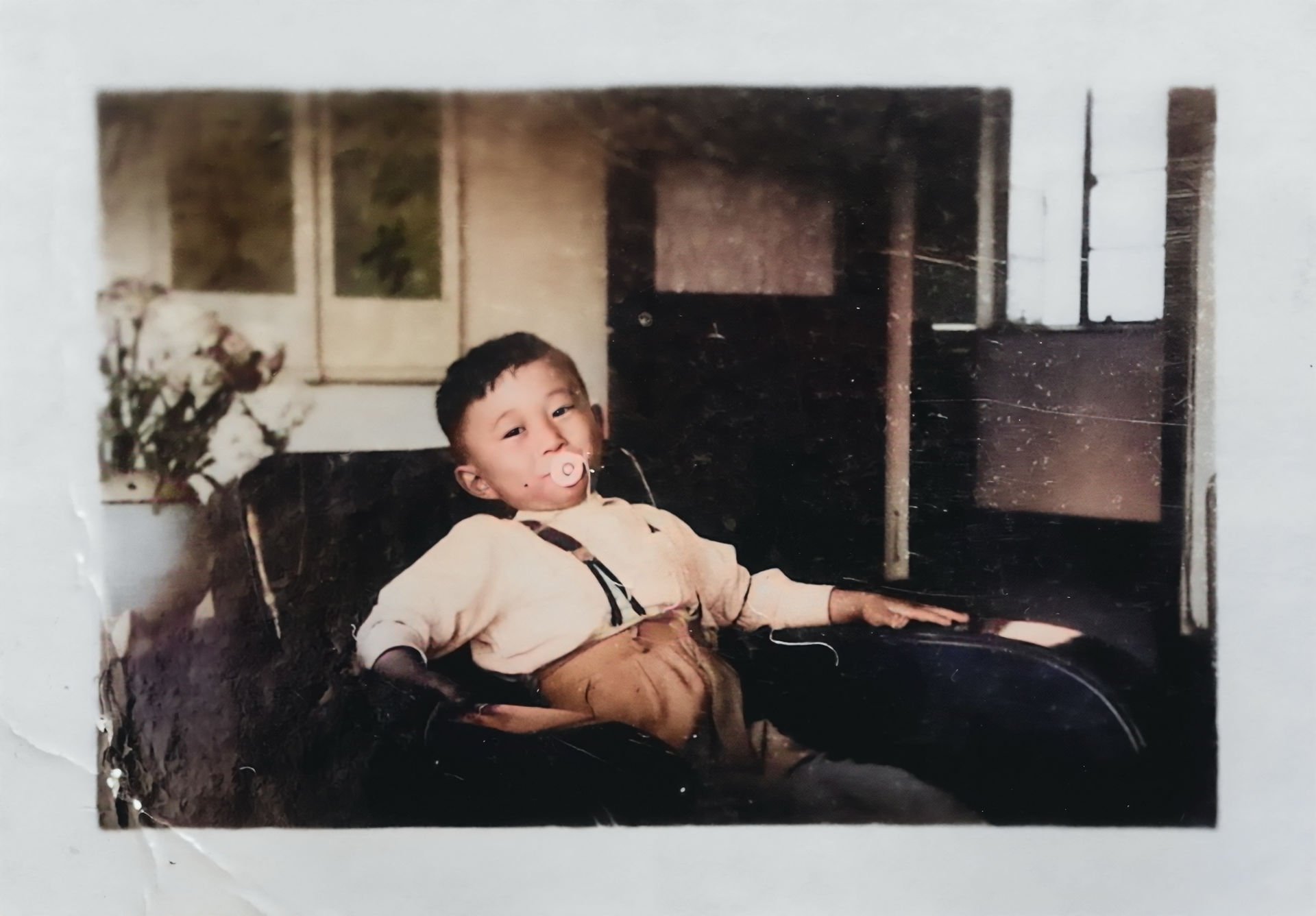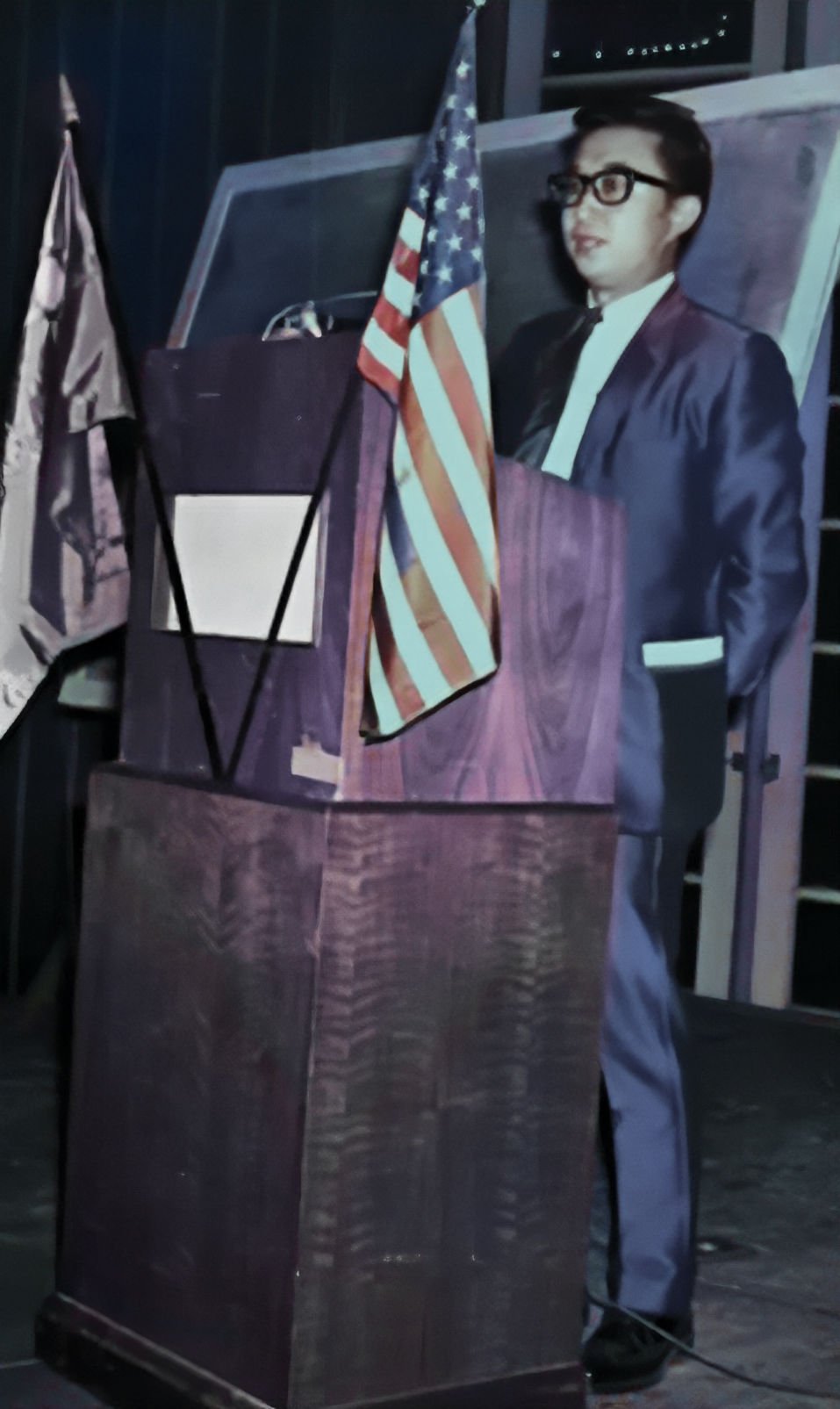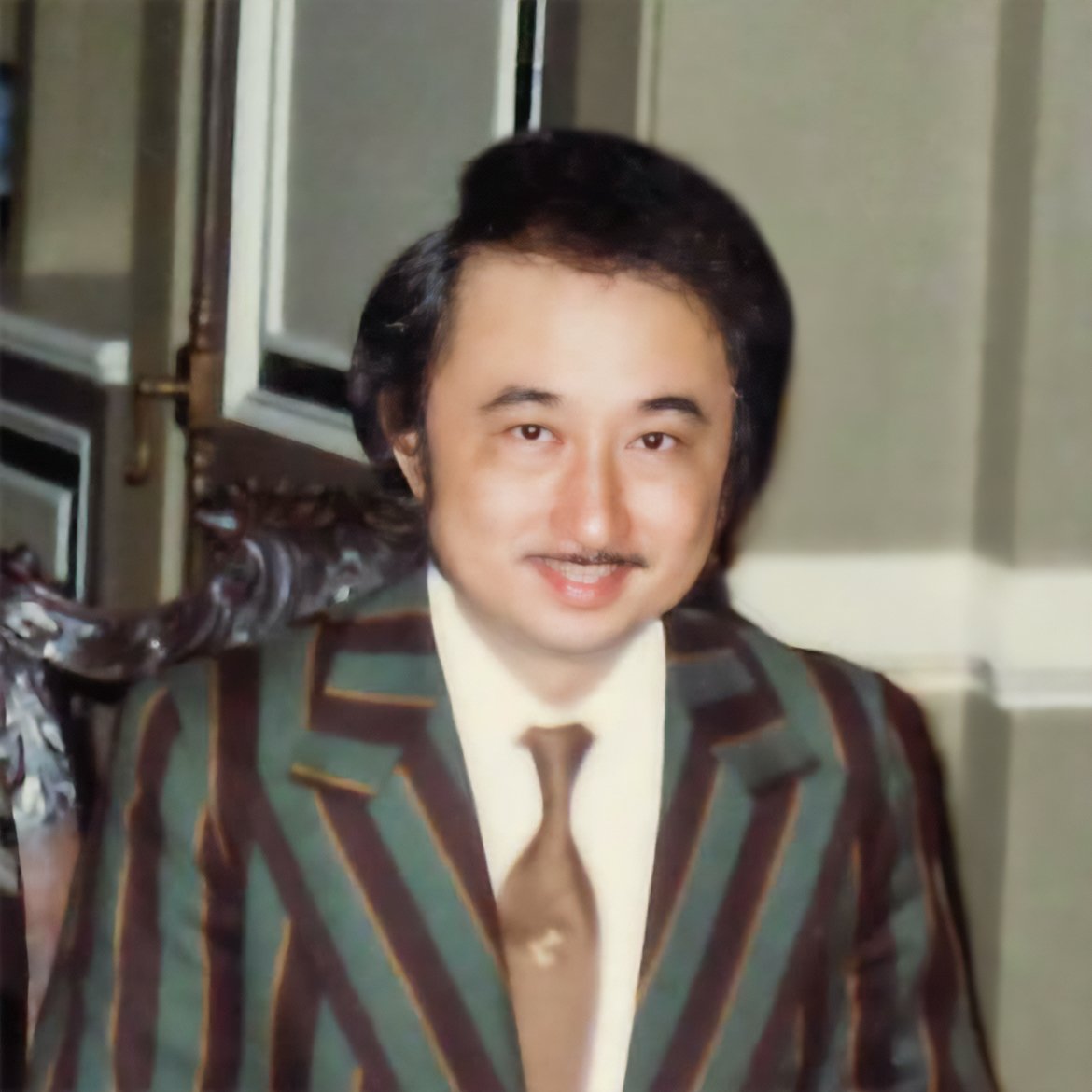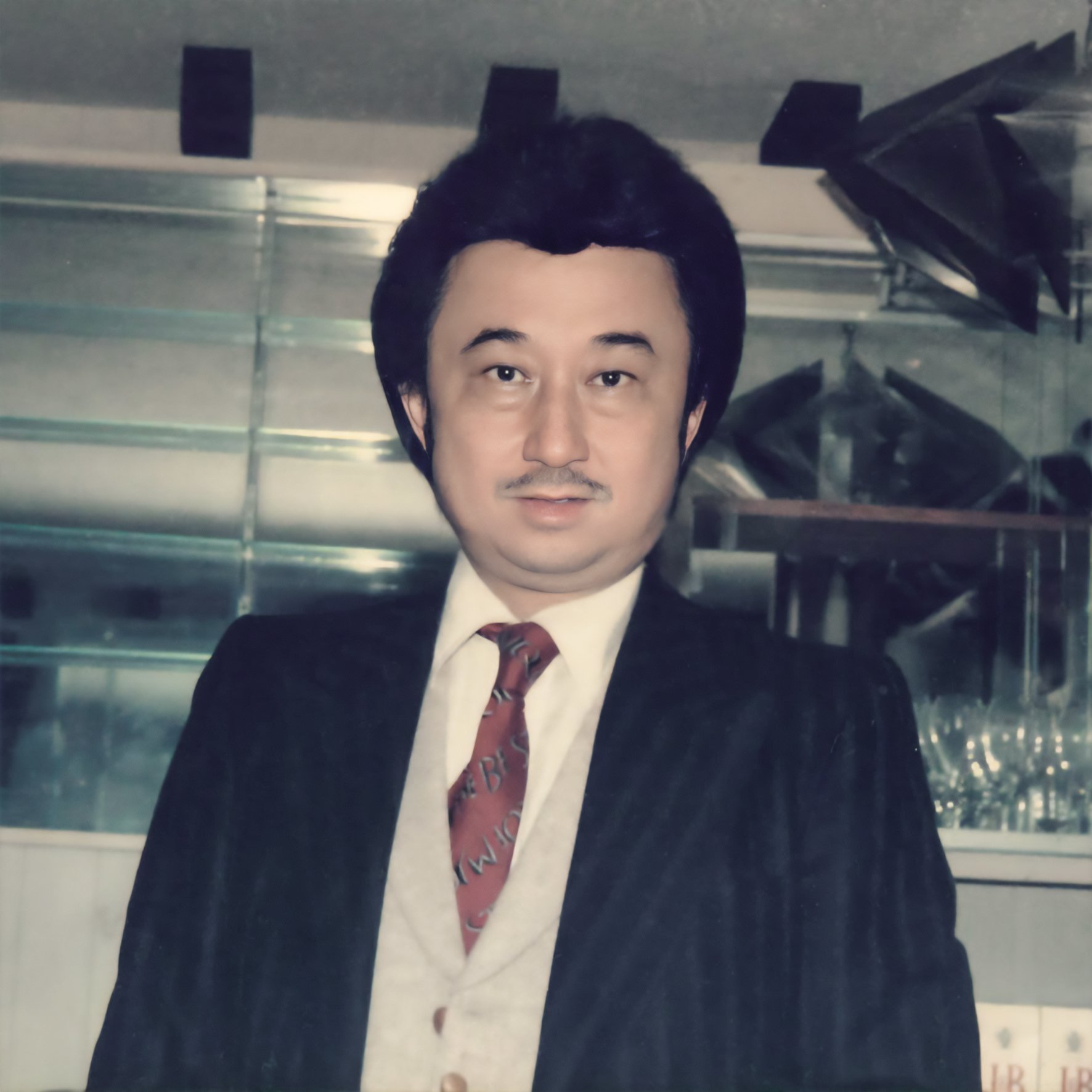From $100 To A Real Estate Dream
Stanley Lo's Epic Journey - Part I to Part IV
Discover Stanley Lo’s motivation, philosophy, and attitudes towards life, business, and health.
• An Autobiography Series Of Stanley's Life And Experiences •

A Spoiled Beginning
I entered the world in China as a premature 3-pound hairy little baby born into a wealthy and influential family. Soldiers always encircled us, serving as our bodyguards and escorts wherever we ventured out of our home. Our household staff included cooks specializing in Northern & Southern Chinese cuisine, Vietnamese delicacies, and even a French chef. Each child in our family required the attention of two nannies. During dinner, six helpers attended to our needs at the table. I remember the master’s bedroom adorned in gold. We owned streets and blocks, even a park in the Downtown area where we resided. Whenever my grandparents celebrated their birthdays, it was a week-long extravaganza with performers and an opulent banquet. It was an unimaginable dream-like existence.
From Riches To Rags
However, this dream abruptly shattered when Communist China invaded our city. We lost everything. All our possessions were seized, and the ordeal was so unbearable that some family members chose to end their own lives. My grandfather, once a figure of authority and the richest man in the city, was reduced to work as a gardener of what used to be his home. For our safety, we had to escape the country. The former government arranged a chartered flight for us to Hong Kong.
Life took a drastic turn in Hong Kong. The luxurious homes, security details, and servants were gone. Fortunately, our grandfather had a connection in a high-ranking position, and through his assistance, we lived a modest life. However, due to my father’s high-ranking role in the previous Chinese government, for security reasons, we had to flee again, this time to Taiwan.
A Tough Life
Our journey to Taiwan involved a terrifying boat ride across tumultuous ocean waves. Survival seemed uncertain during that voyage. Upon arriving in Taiwan, poverty greeted us. It was a stark contrast to the life we once knew. We lived in a small, leaky shanty where our entire family squeezed together. My mother cooked with coal, using an old menu to fan the flames. We subsisted on vegetables daily, boiling water for bathing with the same coal. We lacked basic amenities like air conditioning, hot water, and transportation. I remember walking barefoot for hours to school. To put it mildly, local kids disapproved of me wearing shoes. These conditions contributed to my development of asthma, leading to oxygen tank reliance during attacks. I often wished for an end to the misery. I was determined to be a fighter. I had nine brothers and sisters and they positioned me as head of the family; they made me the leader.
The Fight Back
Instead of succumbing to despair, I used these hardships as motivation. Recalling my previous life of wealth, I was determined to regain it. I believed the pathway was through excelling in everything, starting with academics. I pushed myself to be number one every day, even while enduring blisters on my feet during the long walks to school. Eventually, I achieved academic excellence and earned numerous honors. I was elected to be the class leader. My first-place awards filled a wall in my parents’ room.
This dedication caught the government’s attention, securing my admission to college. While pursuing a degree in political science, I balanced part-time jobs as a translator and tutor. Although these commitments affected my academic standing, I persisted and graduated.
Military Life
In Taiwan, military service for two years was mandatory. After I graduated college, I found myself in the Marines, enduring harsh conditions in tents by the ocean where the wind always blew sand all over our food that we had to eat due to hunger. Moreover, social difficulties arose due to tensions between the Taiwanese locals and Mainland Chinese, compounded by disdain from uneducated sergeants towards college-educated individuals. Desperate to leave, I staged an incident atop a flagpole, feigning psychological distress to secure release from the military. This idea succeeded and I was released from the mandatory military life.
America
With a desire to chase my dreams, I aimed for the United States. To get authorization to leave for the U.S. you were required to take a difficult test. Although admitted to the Taiwan Air Force due to my size being ideal for flying jet fighters, I received news at the last-minute that I passed the test to go overseas, and I was approved to leave for the U.S. I embarked on a flight to Kansas City, Wichita, opting for the cheapest option via Northwest Airlines, becoming the first in my family to depart for the U.S.
During a stopover in Seattle, an asthma attack led to hospitalization. Upon discharge, I changed course, taking a Greyhound bus to San Francisco based on advice regarding better weather for my asthma and a larger Asian community. Arriving in a city where I struggled to comprehend and communicate in English, I settled into a questionable, budget-friendly hotel, reliant on a meager $100.
Surviving on a tight budget, my diet consisted mainly of hot dogs with excessive relish until store owners intervened and ejected me for my routine. Determined to pursue education and secure a job, I found work in Chinatown as a dishwasher, climbing the ranks to waiter, bartender, and eventually learning culinary skills. Despite pressure from employers to forget about college, I persisted and applied to San Jose State University. Lacking recommendations, I sought aid from a priest and gained acceptance, choosing electrical engineering for its promise of a green card upon graduation.
Surviving
Living in San Francisco, particularly in my neighborhood, was an uphill battle. I recall being stopped at my apartment door by individuals demanding a “protection fee” just to step outside. Money was tight, yet I had to pay up. It was evident I needed a new job to make ends meet..
To cover my expenses - rent, schooling, and daily living - I found work as a busboy at Phil Lehr’s Steakery, a renowned spot in San Francisco at the time. On my first day, I faced a daunting task: carrying a hefty tray loaded with 20 glasses of wine. Being small-framed, I struggled and ended up spilling the glasses, much to the owner’s fury. “You’re fired,” he bellowed in front of everyone. Desperate, I refused to accept defeat and proposed a deal privately. With broken English, I negotiated to work for free for two months to keep my job - a deal I honored diligently, but aking advantage of the complimentary meals. During that period, I went above and beyond, taking on extra tasks and impressing the owner with my dedication, eventually earning his respect and support..
However, the income from the steakhouse wasn’t enough. So, leveraging my electrical drafting skills acquired at school, I secured a job in the heart of the San Francisco Peninsula. Days became a whirlwind of early mornings for school, afternoons as a draftsman, and evenings at the restaurant, followed by late-night study sessions - a hectic routine that defined that phase of my life.

Asian-American Recreation Club (AARC)
Despite pursuing electrical engineering studies, I soon realized it wasn’t my calling. Yet, finishing school was crucial for a chance at a green card. I ventured into leadership, running for president of the Chinese Student Association. I transformed it into a vibrant, profitable entity. Yet, I felt its scope was limited to San Jose State, prompting me to expand. I initiated a new Chinese club and assumed leadership over all chapters across the nation.
Discovering the steep costs faced by Chinese students traveling to China, I devised a solution: charter flights. Through relentless effort, I rallied students nationwide, forming the Asian-American Recreation Club (AARC). Negotiating with airlines and tapping into underutilized flights, I organized affordable trips, fostering a thriving travel club. The venture gained momentum, eventually leading to being recognized by top airline executives, paving the way for lucrative deals.
Takeoff and Turbulence
Launching four flights annually garnered a sizable membership base. Expanding to overseas accommodations and return flights, my venture soared, generating considerable revenue. With nearly a hundred employees, I relinquished my previous jobs, yet the demands of school persisted. Juggling studies amidst business expansion took its toll - risking expulsion due to frequent absences from classes.
Simultaneously, corporate giants felt threatened by my disruptive business model. Accusations and investigations surfaced, leading to my sudden deportation and I had to operate the business remotely from Japan. The subsequent legal battles, including immigration hurdles, IRS complications, and criminal allegations, amplified my challenges. Moreover, with a burgeoning family and mounting court appearances, life became an arduous balancing act.
Back to Where I Started
Against the odds, I graduated, albeit to the surprise of professors. Concurrently, immigration issues resolved, business thrived, and investments in real estate burgeoned. From an initial property deal in Los Altos Hills to a burgeoning real estate portfolio, I ascended to millionaire status, earning accolades in the Chinese community and media recognition.
However, a financial storm hit with skyrocketing interest rates and industry deregulation during the Carter Administration, forcing the closure of my charter flight operations and straining my real estate ventures. I faced a stark reversal, transitioning from opulence to renting a house, relinquishing luxuries, and enduring a divorce. It brought me back to when I was young. Seemingly overnight the glory days were gone again.
All the super-rich billionaire “Friends” I use to eat and drink with suddenly started avoiding me, did not return my calls, and my pleads for help, highlighting life’s capricious nature. I was banned from entering Taiwan for trying to do business with China. So, I could not go to Taiwan to raise money to save all the real estate. It seemed life had come full circle but now in my 30s. Navigating financial ruins, I learned invaluable lessons: Not all friends are true friends, the good times will never last, and lastly, when you are living the high life people especially your competitors will try to pull you down – no doubt about it.
A New Chapter
Forced to pivot, I delved into real estate brokerage. This marked a new chapter in my tumultuous yet resilient journey.

Starting Over
In my late thirties, I went from enjoying a wealthy lifestyle to facing poverty in Taiwan, only to rebuild my life from scratch once again. However, due to political circumstances beyond my control, I found myself knocked down once more. “What should I do?” I had to quickly make up my mind, and I decided to venture into real estate.
Fortunately, armed with a four-year college degree and a background in numerous personal and business real estate dealings and development, I was eligible to take the broker’s test. I studied diligently, took the test in a hurry, and obtained my broker’s license right away.
Immediately, I began marketing myself in Hillsborough. My first listing was the house I was renting at the time. The owner passed away while I was renting it, and the trustee trusted me enough to let me try selling it. It was an older ranch-style home behind a school, and selling it wasn’t going to be easy. However, by some stroke of luck, a buyer came along within the first week, and the trustee surprised me with a 6% commission, which I hadn’t expected. This boosted my confidence right from the start.
Breaking In
At that time, I had an idea of how I could approach marketing. I found a designer to create some flyers. In the past, it was just a Word document with pictures pasted in. I started direct mailing them.
As a newcomer in the industry and a foreigner in a predominantly homogeneous market, I knew I faced an uphill battle. Many times, when people saw me, a Chinese man, they would apologize and say they had decided not to sell, even before giving me a chance.
I realized that, much like in my previous airline business, consumers wanted value. The big companies were asking for 6%, controlling the market with their hundreds of agents. To compete, I had to change my marketing strategy. As a broker, I didn’t have to share my commission like agents did, so I decided to pass on the savings to the public and offer my services at wholesale prices.
I used the first commission I earned to start my direct mailing advertising. Fortunately, I began to get listings. Once I got my foot in the door, people appreciated my personality, knowledge, and the savings I offered. My experience as a developer and selling my own home impressed them, and soon, people started using my services. In my first year, to my disbelief, I was recognized by the local board of Realtors as the top agent.
Better Than Before
It wasn’t easy relying on just one city or town, so I expanded my marketing to Burlingame and Millbrae, with great success. My approach gave people more for less and ensured quicker sales. Word of mouth helped spread my reputation, and soon I became the top agent in multiple cities.
I found myself enjoying this business more than my old one. While it demanded more time and effort, the fulfillment of providing excellent service and getting top-rated results was unparalleled. Of course, it came with its frustrations, but I learned to accept the reality that not everyone would choose me as their agent.
Marketing is the Key
Realizing the importance of direct mail marketing, I started including a free quarterly market data research in my marketing materials. This added value and further established my credibility.
With time, I became the number one agent for Hillsborough and then for Millbrae, despite facing complaints and baseless accusations from competitors. I persevered through it all, determined to succeed.
At this point in my life, with young children and numerous expenses, I ventured into building a house in Hillsborough and gradually expanded my investment property portfolio. I learned from past mistakes and embraced principles of financial prudence and self-reliance. Through it all, I’ve come to realize the importance of profit and the need to stay in control of my destiny.

Running a Tight Ship
When I was running my airline business, I relied heavily on my staff “I had a huge staff” and just concerned myself with “big management” larger issues. I was hardly in the office. I traveled a lot. With real estate, I nailed myself down to the office. I managed everything – the workplace, employees, expenses, all the money. I sign every check. I control everything, every penny.
At this time, with all the pressure from my competitors, raising my children, running a tight ship at the office, and even without an MBA, I created my own management style, my own marketing, and created my own niche which was totally different. I decided, to have only one office and one agent – me; unlike other brokerages who try to build up their name by hiring hundreds of people under one roof including a lot of rookies. Rookies do not produce a lot so the brokerage is carried by a few successful agents which split commission amongst themselves, therefore the brokerage can hardly make any money. I wanted to avoid that. I even got an opportunity to buy a real estate brokerage firm real cheap in the verge of bankruptcy. I told myself this was not a good idea. I would have to rely on other agents. If the agents walked away or are stolen by other companies, I would end up with only a shell. I’d lose everything. I realized I absolutely don’t want to touch this.
My company started to thrive, with growth year after year. I was starting to rank as the top agent locally city by city and then in my county as an individual agent. Every year my sales volume would increase 20% to 30% and gave me really good profit. With the profits, I started acquiring investment properties.
Going Commercial
The first commercial property I bought used to be a Japanese bank and it was going to foreclose. The building was offered for three million. It was almost empty and needed a lot of work. I remember a very successful real estate agent friend of mine – I called him “the real estate king” who gave me guidance, he came up to me and said “Stanley, you got to buy this building one way or the other”. I said “I don’t have enough money” he replied “Stretch out whatever you have and do whatever you can. I give you this gift. If you don’t buy it, I will” I consulted with him and trusted him, So, I negotiated to purchase the building. The sellers really wanted to unload it because it needed a lot of work, and the bank didn’t want to keep a troubled property in their portfolio. I made a deal and got the building for around a million bucks. The first thing I did was to move my office to this building.
I learned property management firsthand when I used to oversee a building for a good friend of mine. I filled up all four floors of the building with tenants. But not only was it not appreciated; my “friend” started to squeeze me out, so he did not have to pay for property management. Before I came along, the building was not managed well, and he refused to take care of his tenants. I learned when you own a building or manage any property where you have tenants is that the tenant is your partner; you must take care of them and keep them happy. That’s why all the tenants liked me, and I was able to fill up the building. Then I got pushed out.
Luckily, this happened at the same time I bought my first building. I moved my operation there and started to fix everything. I fixed it properly and economically. And suddenly, I filled up my building with tenants. From zero to more than ten tenants. Seemingly overnight, this commercial property’s value increased significantly. Again, this gave me confidence to keep growing and investing in commercial properties which I learned can produce substantial profit. This opened the door for more great opportunities for me.
American Business
Meantime, I needed to get more American business as the bulk of my clients were Asian. As a minority at that time, it was not easy. I set my eyes on a famous Jewish restaurant in Burlingame where I understood the owners wanted to retire. I found it was a huge gathering place for locals. I approached the owners, and they wanted a lot of money for the business. When I told them I wanted to buy it they said “You don’t know the business. How can you buy it?”. I told them “You train me”, I would learn the business, keep whatever employees they have, and I would manage it. They said okay and I bought it. Then there was the landlord. He was an old-fashioned real estate agent who liked to charge people 5% or 6%. He learned I gave discounted commission. He said, “You are hurting the business and I’m not going to approve your lease, what experience do you have running a restaurant”. As you know by now, I’m a fighter. I don’t take no for an answer. I said it’s not personal, it’s business. At this time my financials were getting better, so I offered to pay him some rent in advance. Legally, he knew he could not refuse me on that basis. So, he agreed. But he said “Your lease is up in three years, and I am not giving you an option to renew. You know that right?”. I said fine. But in my mind, I told myself “I’ll make you like me”.
Finally, I owned the restaurant, and we had a lot of customers. Sometimes there were four hundred people a day. I needed a lot of employees. It was a union business. The restaurant belonged to a union and that made it very difficult and very costly. I remember union people giving me a hard time. But again, I was patient and I endured.
So, not only was I a real estate broker and agent, I went into the real estate investment business, and now I was in the restaurant business. How would I manage all these businesses? I had to streamline and simplify my operations. These days, there are many apps to choose from but back then, I had to hire someone to program custom computer software for accounting, inventory, and management. I modernized my businesses and brought them to the computer age. It worked great!
After I ran the restaurant business for a while continuing my promotion and direct mail marketing for all my businesses giving a lot of deals to locals, I started meeting a lot of local people who not only became my customers, but they also became my friends. I got to know a lot of Jewish people. The first real estate business I got from the restaurant was from a large Jewish family; actually, nine families all moving out of the area. They gave me nine listings. It was a really huge profit for me as some lived in really affluent homes. And not only did I sell the homes, but I also sold them for top dollar and saved them money on commission allowing them to pocket more money. The word started to spread resulting in more business for me. This led to my next endeavor — publishing.
